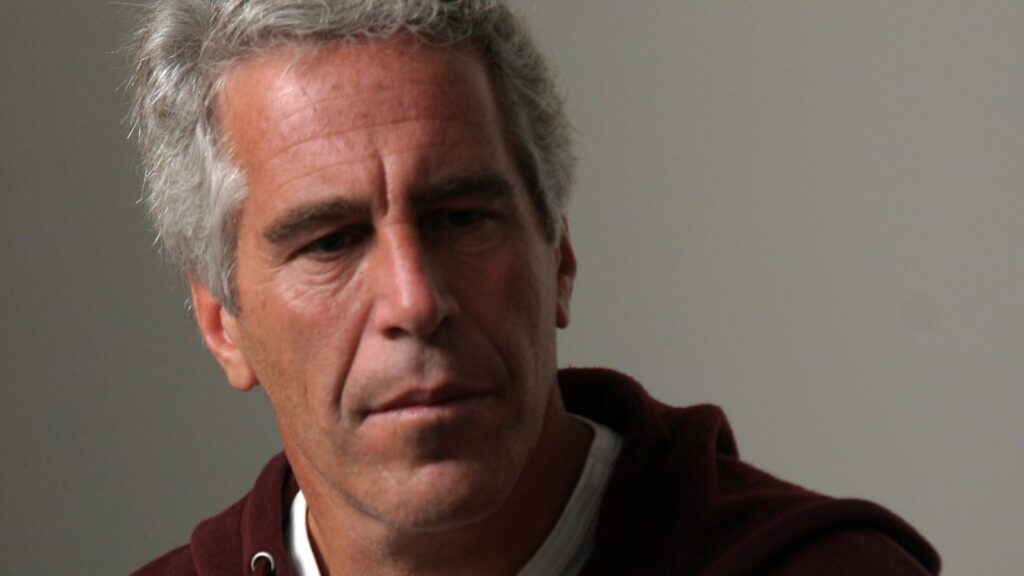Jan. 6 Is Looming Over the 2024 Election. They Made It Into a Board Game
It’s a Friday night in Bushwick, Brooklyn, and six patriots are getting ready to take over the U.S. Capitol.
There are no tactical vests or American flag bandanas to be seen, nor are there any tri-corner hats or effigies or black and yellow militia uniforms. These would probably not be the type of people to participate in a violent uprising on a cold January afternoon, at least not one protesting the certification of a presidential election. Instead, armed with several six-packs of craft beer and a healthy selection of chips, they’re getting ready to play out the deadly insurrection as only a certain kind of adult might find appealing: as a board game.
Storm the Capitol, the brainchild of two of the people sitting around the decked-out dining-room table — brother and sister duo Walker and Zee Behl — gives four to seven players the opportunity to recreate the events of Jan. 6, 2021. Playing as characters like a MAGA grandma, a QAnon shaman, or a pink-haired rockstar, participants work their way around the board collecting ballots, aiming to get enough to make it up the golden ladder to join Donald Trump on his helicopter. Along the way, they battle each other and the Capitol police, which in this case is a single player armed with tasers and attack dogs who is trying to quell the riot until the National Guard can arrive.
“The best advice for it being the most fun is for everyone to be as aggressive to each other [as they can],” Walker tells me a few weeks before the game, when I was still trying to figure out why anyone would be interested in reliving such an awful day as entertainment. “That and then lying, cheating, and deals are encouraged!”
Zee Behl, Brace Belden, and Walker Behl.
Part of my hesitation going into the game was the very real possibility of more Jan. 6.-style political violence in the wake of the upcoming election. It was one thing to crack jokes when Trump was being impeached for inciting it, but it feels like an entirely different thing to laugh about this fall, as he slouches towards the presidency while clamoring on about Hitler and “the enemy from within.” If Kamala Harris ekes out a win, he and his followers are almost guaranteed to try to overturn those results — either in the courts, the streets, or both. Will the real joke be how small Jan. 6, 2021 looks in comparison to what could be coming?
Perhaps part of the point is to work through that anxiety, make light of the terror. But when it was released on Jan. 6, 2024, people were confused. Were the creators pro-insurrection? Poking fun at it? Was it all just in bad taste? Walker, 35, and Zee, 39, were, in fact, just a couple of Manhattan-raised millennials whose political awakening during Occupy Wall Street was starting to sour. Pointing the mirror back on an absurd society was the only way to process it. “A certain amount of irreverence feels really important, given that we’re in a political deadlock. What is there to fucking believe in now?” says Zee. “And to just be like, ‘Oh, it’s off limits because people died.’ Fuck you, we were children when 9/11 happened in our back yard. Our school was a triage center. And what are we doing in the Middle East? What is our imperialist agenda? People die.”
It’s not entirely unsurprising that Jan. 6 was made into a game. Board games are experiencing a bit of a Renaissance. Sales have been growing exponentially since the pandemic (the now-$14 billion industry is expected to hit $32 billion by 2032), and even before that they were having a resurgence, thanks to a burgeoning industry of independent, off-beat games that offered competition (like Catan, basically shorthand at this point for the modern genre), cooperation (Pandemic, whose premise of the world coming together to battle a pathogen was quickly and terrifyingly proven wrong), or some combination of the two (Betrayal at House on the Hill — cooperative until someone turns into a monster).
Growing up, Walker and Zee sometimes played games as a family, mostly Risk and the little-known Clue II, an interactive 1980s sequel to the classic detective game. But a week after the insurrection, quarantined in their parents’ house, making a banana cream pie with some of Walker’s friends to celebrate his birthday, the idea was sparked. “They were like, jumping around about how funny it would be to make a board game,” Zee remembers. “Then they went to go play video games. And I was like, ‘No — let’s do it.’ And then they stayed up all night making little people out of Fimo [model clay], and I made the board from watercolor. And then we made my parents play with them for his birthday.”
For Brace Belden — a friend of Walker’s from the punk scene who helped develop the game and has promoted it on his podcast TrueAnon — it was also the most natural medium. “A movie would be too histrionic, and probably have to gussy up some of the action scenes a little too much,” he says. “Some 10-part Slate podcast, nobody would make it past episode two. A two-hour board game, that you have to have friends to play with, is the only way to get it across. Because I know on Jan. 6, I was texting everybody. I was hanging out with people watching the thing — it was like a communal experience.”
In the game, participants roll dice to move a certain number of spaces, enter rooms, and flip over desks. Players might be awarded a prize card with a few ballots (collect 100 to start making your way to Trump) or a hostage (Pence, for example); an item card (batons, gas masks, tasers, other things that come in handy when battling fellow insurrectionists or cops); or an event card. It’s here where it seems most of the creative energy went in, with events either taking place in the game or in real life, like awarding a prize to whoever has the highest number of Covid-19 booster shots IRL or texting a loved one a lie about where they are at that moment. In developing the game, they had to drop a few planned elements — a sweet smell that led you to Alexandria Ocasio-Cortez’s shoes, a crypt housing the ghost of Abraham Lincoln — but what’s left feels fully realized, while still being manageable. “There were too many rules, and we were trying to make it a little bit easier,” Zee says.
Thanks to a push from TrueAnon — as well as a promo video starring comedians John Early and Cole Escola — the game started to get some pickup. They did an installation in Los Angeles with live-action players and enormous styrofoam dice (luckily, players throwing these at each other was about as physical as things got), and even set up shop outside Donald Trump’s Manhattan defamation trial (“I sold eight games to the entire Fox News crew,” notes Walker). And while it may not be a commercial hit at this point, it’s shaping up into a solid excuse for a family business. “Our parents were pulling the shrink wrap around the boxes, and we literally packaged 2,000 games out of my basement in the snow in January during Covid,” says Zee. “I’m an artist, I make metal sculptures. But this is how I’ve been supporting myself the last year and a half.”
After it came out, commenters on gaming forums were quick to criticize the mechanics of the game, calling them overly simple and outdated. But as a casual player, it’s surprisingly fun, and seems to have unintentionally picked up elements of other popular board games, like the grid from Clue, or the helicopter escape from The Thing, or the fascist roleplay of Secret Hitler. As for the subject matter, it succeeds in peeling back the sheen of something that has been given immense weight.
The way our game in Bushwick wraps — one insurrectionist taking down another right before they can join Trump’s getaway, leaving us to cheat our way out of losing to the National Guard — feels apt. “Sometimes people talk about [Jan. 6] with such — being so solemn and so reverent,” one player says to the group after we’re done. “Yeah, that’s true. It was a super fucked up situation. [But] it was, at its core, super fucking absurd. And so was this game.”





